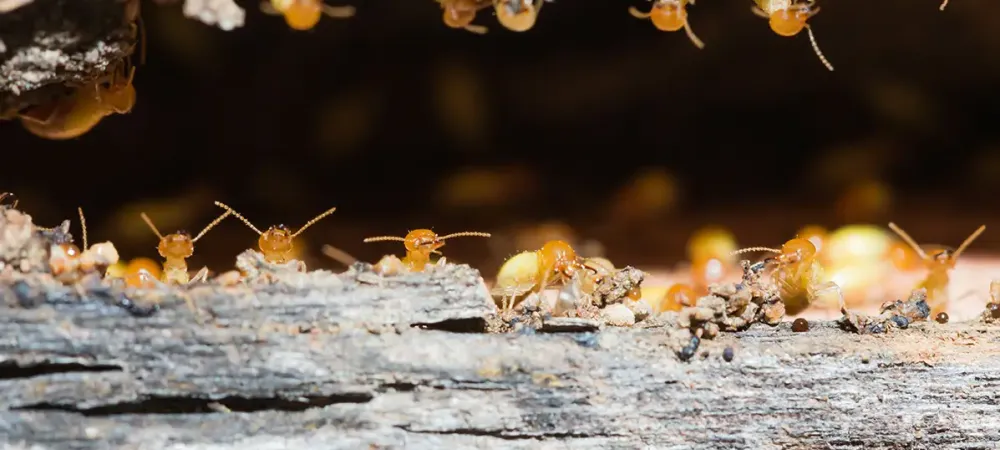Termites in North Carolina: What Every Homeowner Should Know

Why Termites Are a Major Concern in NC
North Carolina’s warm, humid climate creates the perfect environment for termites to thrive. These pests are active year-round in much of the state, especially in areas with consistent moisture.
Termite damage often goes undetected until it becomes severe, and by then, repairs can cost thousands. That’s why early prevention and monitoring are critical for protecting your home and long-term investment.
The Most Common Termites in NC
The most widespread and destructive species in North Carolina is the Eastern Subterranean Termite. These termites live underground and build mud tubes to access above-ground wood, often attacking homes from below without being noticed.
Signs of Termite Activity:
- Mud tubes along foundation walls or crawl spaces
- Winged swarmers near windows or light fixtures
- Hollow-sounding wood or blistered flooring
- Discarded wings around doors and windows
Unlike drywood termites or Formosan termites—which are rare in NC—Eastern Subterranean Termites require moist soil and can be especially aggressive if left unchecked.
When Termites Are Most Active in NC
Swarming season in North Carolina typically runs from March through May, especially after rainfall. This is when reproductive termites leave mature colonies to establish new ones.
Conditions that attract termites include:
- Consistent moisture near your home’s foundation
- Wood-to-soil contact, such as untreated deck posts, mulch, or firewood
- Poor drainage or leaking gutters that keep the area damp
Preventing Termite Infestations
You can reduce the risk of termite problems by addressing conducive conditions around your property:
- Eliminate moisture near the foundation by fixing leaks and improving drainage.
- Remove wood debris, mulch, and tree stumps from near your home’s perimeter.
- Schedule annual inspections to catch activity early.
- Install termite monitoring stations with the help of a professional team. Get a free quote from Gibson Pest Control to learn more.
Treatment Options for North Carolina Homes
If termites are already active—or if you're looking for long-term protection—professional termite control typically involves:
- Liquid barrier treatments, which create a chemical barrier in the soil.
- Bait systems, which use termite attractants and slow-acting agents to eliminate colonies.
Both methods require ongoing monitoring and expertise to be effective. DIY treatments often miss hidden colonies and don’t provide the lasting protection needed in a high-risk state like North Carolina.
Protect Your Home from Termites Before It’s Too Late
Early detection and proactive prevention are key to avoiding costly termite damage. Whether you’ve seen signs of activity or want to prevent future problems, it’s smart to bring in a professional for a full assessment.
Schedule an inspection today or learn more about professional termite control that's tailored for North Carolina homes.
